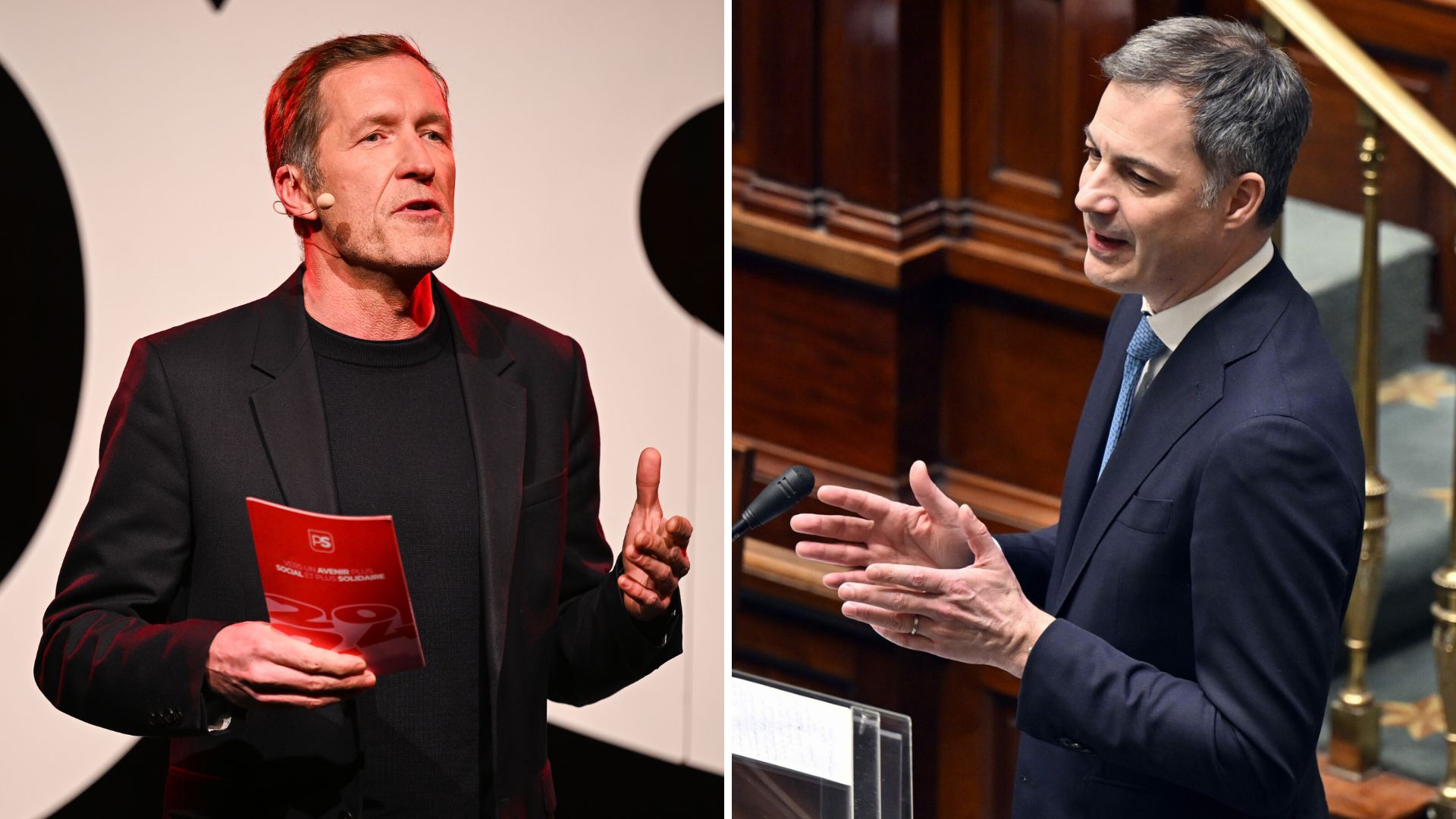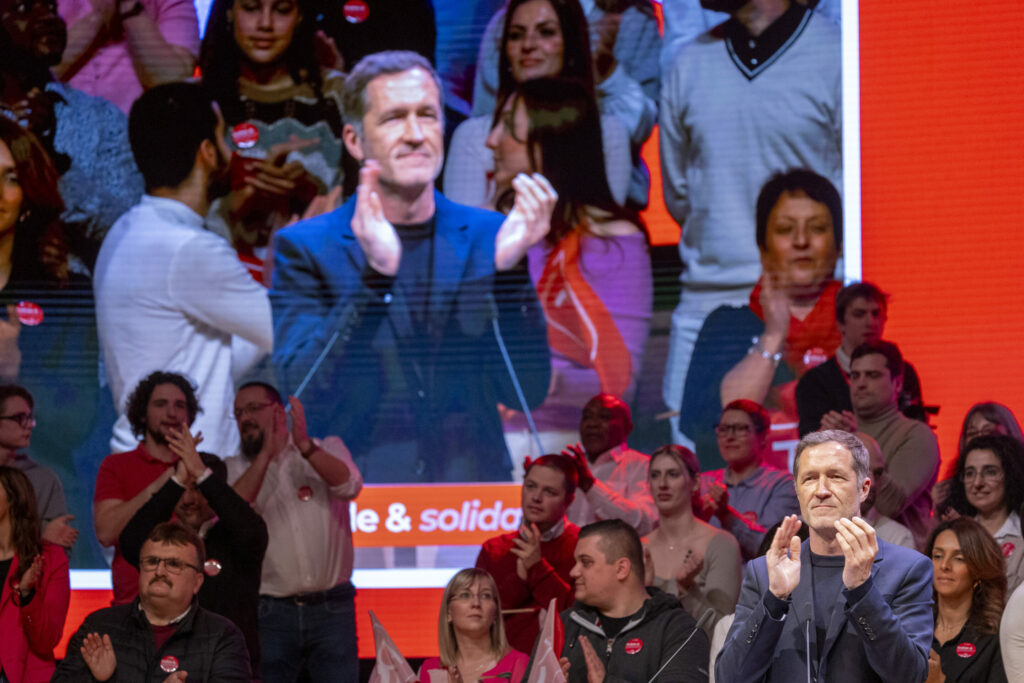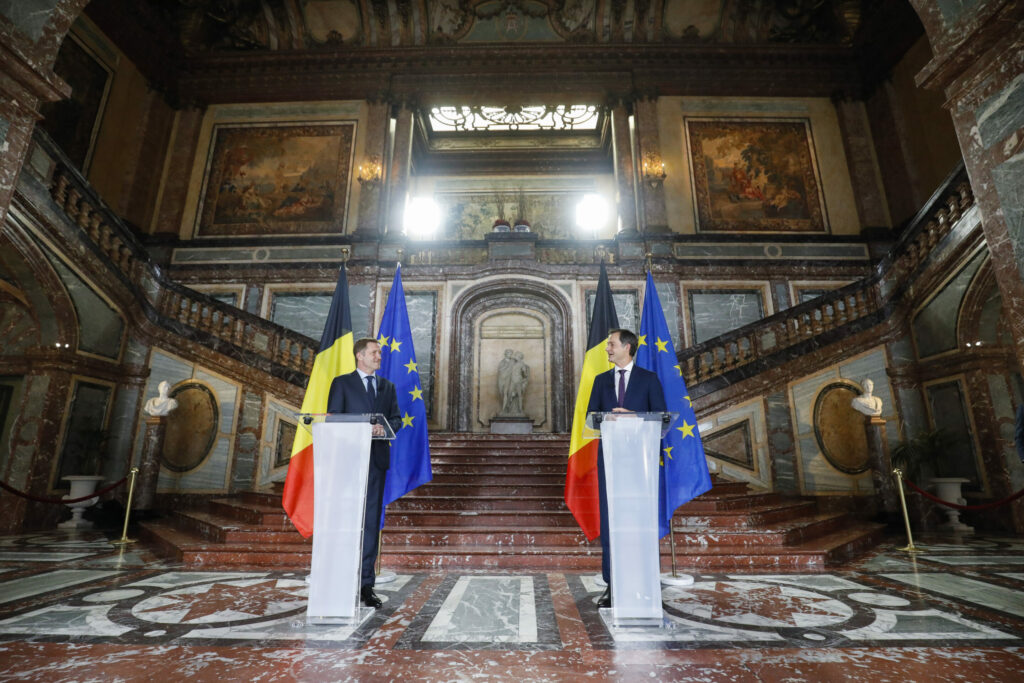In the run-up to the elections in early June, Belgium's current Prime Minister Alexander De Croo (Open VLD) and leader of the Francophone socialist PS party Paul Magnette debated each other on the French-language television channel 'RTL-TVi' on Wednesday evening.
The two government partners – who worked together to form the current government in 2020 and formed a kind of bromance at the time – generally remained very friendly to each other during the debate, even if their views on Belgians' purchasing power, taxation and (the PS proposal of) a 32-hour working week are, unsurprisingly, very different.
If things go in the same way as they did in 2019 on 9 June, neither of them ruled out a renewal of their cooperation that led to the establishment of the current Federal Government – nicknamed 'Vivaldi'. But the question of who should become Prime Minister remains up in the air.
While an unwritten rule says that the Prime Minister should be from the biggest party in the coalition (which would have been the PS in this case) the position did not go to Magnette in 2020 but to De Croo instead. This was motivated, in part, by an attempt to keep the balance in a Federal Government with a Francophone majority, as well as the fact that the country's three previous leaders had been French-speaking.

PS leader Paul Magnette (left) and Open VLD's Alexander De Croo. Credit: Belga
On Wednesday, Magnette stated that he is "ready to take responsibility" if the socialist family becomes the largest – as was also the case after the last elections – and current Prime Minister De Croo is convinced that he has proven that he "can bring people together."
Magnette also added that the leader of a possible "Vivaldi II" government depends on voters more than the candidates. "I respect Alexander's personal and political qualities. When we made the decision [that De Croo would become PM], the two formations had similar weight," he said. The socialist family (PS and Vooruit) had 29 seats in parliament at the time, the liberal family (MR and Open VLD) had 26.
"If tomorrow more citizens vote for better wages, more investments in health, more investments in security and the socialist family becomes the largest, I am prepared to take my responsibility," said Magnette. For De Croo, however, the real question is where the people want to go with Belgium.
"I believe in this country. In Flanders, there are people who only think of problems when they look at Wallonia or Brussels. I see incredible possibilities," he said. "Will we still be able to work together to strengthen our country on 10 June? I have shown that I can bring people together. To do that, we must come up with solutions that can be heard on both sides of the country."
Taxing the rich?
When it comes to taxation, the differences between the Flemish liberal and the Walloon socialist could not be missed. Magnette started by advocating an increase in purchasing power of at least €300 for "hard-working people, who often find it difficult to make ends meet despite two incomes."
According to the PS, this plan would cost around €6 billion, money that Magnette wants to get through a tax reform. De Croo, however, took the side of the "hardworking entrepreneurs," who help many Belgians find work thanks to their investments, he said.
Taxing the rich more heavily, as PS proposed, is therefore not a solution, De Croo stressed. "This seems to be the PS's magic potion for every problem. Belgium is already a country where taxes are numerous," he said.

PS leader Paul Magnette delivers a speech at a congress of French-speaking socialist party PS. Credit: Belga/Nicolas Maeterlinck
Yet Magnette was harshest for Open VLD's Francophone sister party MR. "The party blocked the tax reform, although there was a broad consensus within the government to reduce taxes on low incomes."
PS' recent proposal of shorter working weeks and less work at the end of a career was also discussed. "The socks were almost knocked off of many Flemish people when you proposed the 32-hour week," said De Croo. "We see the situation in our country: there are 200,000 vacancies, there is an ageing population, there are jobs in hospitals and schools that are not being filled."
For him, the priority should be on helping people who are not currently working to get started. "You have to be careful when you propose things like a 32-hour week. If you do not turn that into a fact afterwards, people will lose their faith in politics," De Croo pointed out.
However, Magnette argued that one does not exclude the other. "Of course we have to help people find work, but we also have to help those who have already had a long career," he said. "People who are older than 60, who often have physically demanding jobs, who are tired and who, thanks to such measures, could continue and not get sick."
'Proud of what he achieved'
While the socialist and liberal leaders unsurprisingly clearly have very different points of view on how to tackle issues like taxation and employment, they both agree that the current government – which was formed under extreme pressure and immediately went into full crisis management mode during the Covid-19 pandemic – did what it could.
"We have done a good job: I am proud of what the Socialists have achieved in this government," Magnette said. "I want to continue, not just for fun but to improve wages and to continue investing in crucial issues such as public health and safety."
De Croo said he was and is still willing to "work with people who have the right priorities." According to him, these are getting more people to work, putting public finances in order and investing in security and defence. He also added that he has no intention of "locking himself in a castle to negotiate institutional reforms that will not achieve anything."

